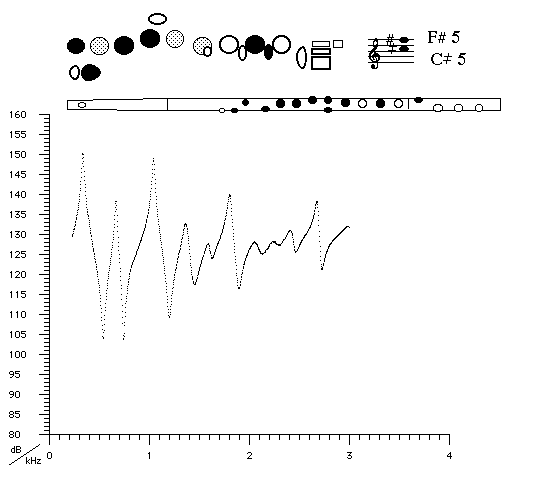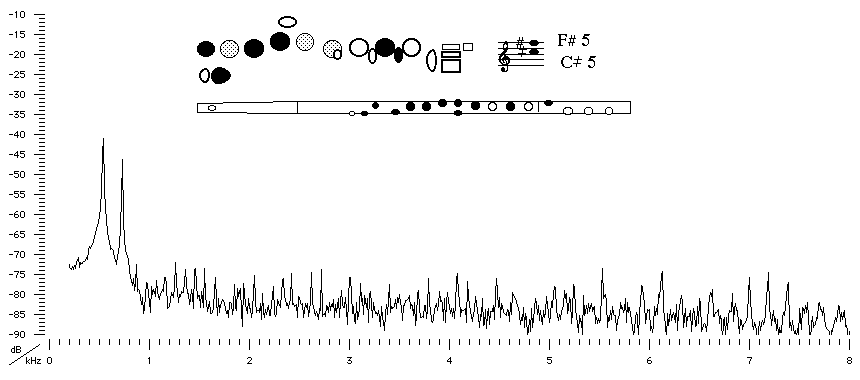| Acoustics of baroque, classical and modern flutes |
modern flute
|
multiphonic
|

|
Fingering Acoustic schematic Non-specialist introduction
to acoustic impedance |
This fingering may be considered as the trill fingering for F#4/5,
but with a register hole. Simultaneously, it could be considered as the trill
fingering for D#5 (C#5 to D#5), but with considerable cross fingering to lower
its pitch to ~C 5. The first
two minima correspond to these pitches. The third and sixth minima can also
be played.
5. The first
two minima correspond to these pitches. The third and sixth minima can also
be played.
For this situation to apply, the frequencies of the notes have to be such that the effect of the inertia of the air in the open tone hole is large enough to allow some transmission past the hole, but small enough to produce some reflection. For low-pitched notes, the tone hole is usually small.

![]()
![]()
![]()
![]()
![]() You can hear the multiphonic C5 with
F#5
played by Geoffrey Collins.
You can hear the multiphonic C5 with
F#5
played by Geoffrey Collins.
| Acoustic measurements are available for these flutes - modern B, modern C, classical C, classical D, classical flared, baroque Sound clips are available for modern B, classical flared and baroque |
To compare flutes, it is easiest to open a separate browser window for each instrument. |